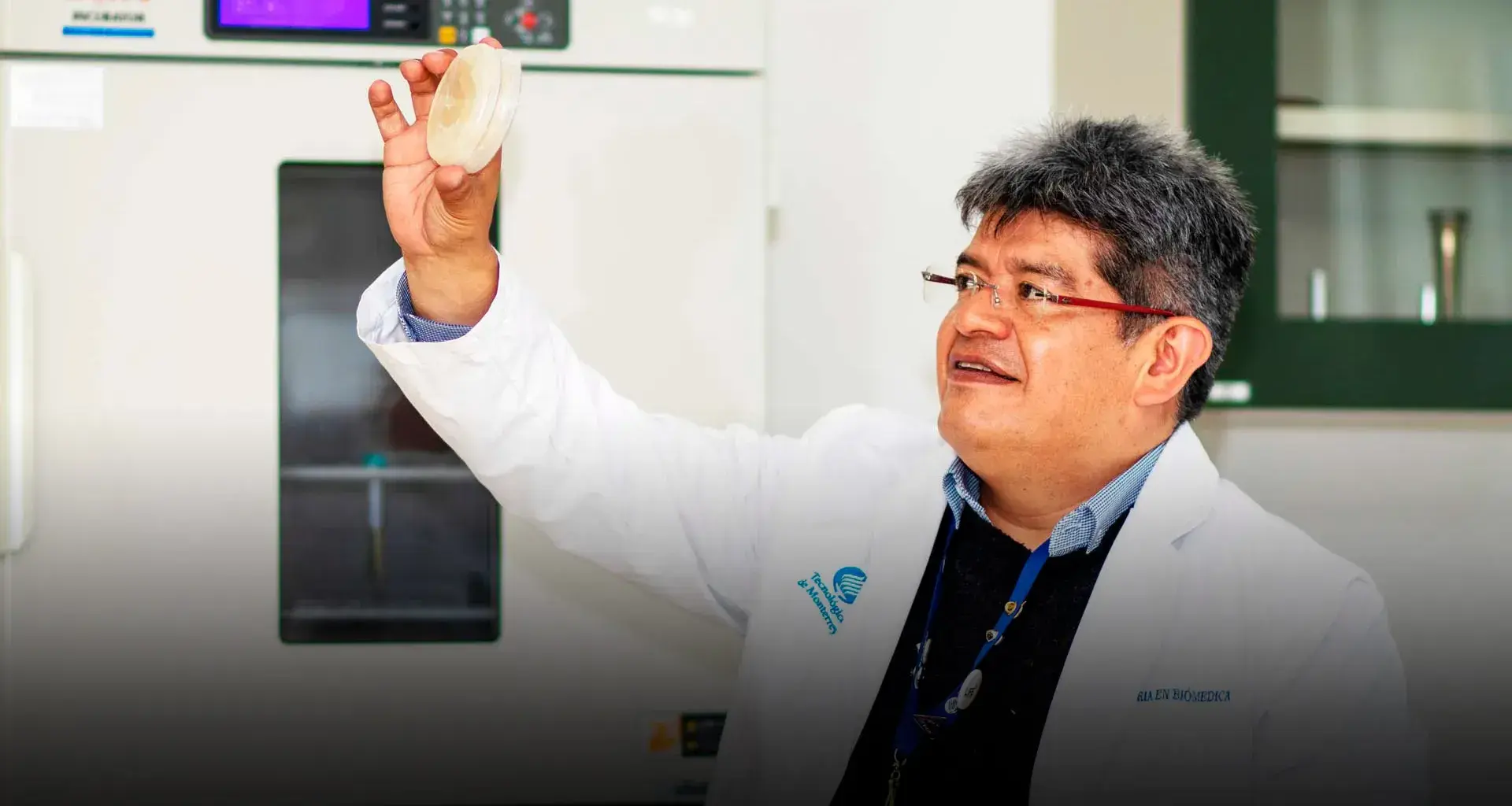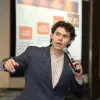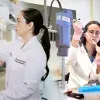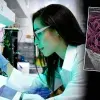Dr. Jorge Membrillo, biotechnologist and research professor at Tec de Monterrey, is the author with the highest number of articles on Challenge-Based Learning in the Scopus database.
According to information from this academic source, he currently has 14 publications on this subject.
At the age of 6, he faced one of his first challenges in life when he decided to study to understand the world. He wanted to be a teacher like his parents and make his grandmother, who took care of him, proud of him at the same time.
“I was very curious. I remember seeing ‘The Sleeping Woman’ (Iztaccíhuatl) and ‘Popo’ (Popocatépetl) and asking myself: ‘How is it possible that I can be down here without a sweater on and up there it’s snowy if it’s closer to the sun?’” he recalls.
Feeding that curiosity in his life led him to work at Harvard. Now, as a professor at the School of Engineering and Science, he collaborates on space innovation projects with NASA, among other projects.
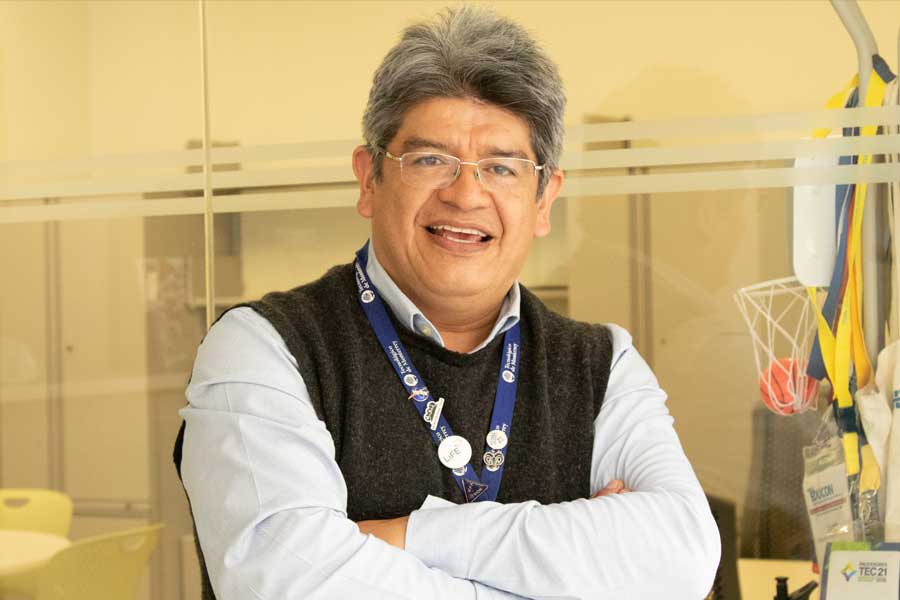
His passions: pedagogy and Challenge-Based Learning
Despite a distinguished career as a researcher in the field of biotechnology, Dr. Membrillo distinguished himself in pedagogy, dedicating his life to the study of new teaching methods.
His efforts are reflected in the fact that he is the author with the largest number of scientific articles on challenge-based learning to date.
Scopus is the largest database of citations and abstracts of peer-reviewed literature: scientific journals, books, and conference proceedings. It provides a comprehensive summary of research results worldwide in science, technology, medicine, social sciences, arts, and humanities.
This database shows that Tec de Monterrey, with 75 documents, is the institution with the highest number of publications on the subject.
Challenge-Based Learning is one of the pillars of the Tec21 Educational Model, along with flexibility, inspiring professors, and providing students with a memorable experience.
The professor has participated as a researcher since arriving at the Tec seven years ago, where he also designs challenges with other professors for the students in the School of Engineering and Science at the Mexico City campus.
“(We want to) use these Challenge-Based Learning techniques to create a model to train students who are going to become engineers for the next NASA missions.”
“Today (at the Tec), we’re designing challenges with someone from NASA who’s in charge of the curriculum for astronaut training, such as the Artemis Mission whose goal is settling on the Moon. In 2024, the first woman will set foot on the Moon, and then they will go to Mars,” he adds.
Another of the projects Dr. Membrillo is participating in as a researcher at the Institute for the Future of Education is collaborating on a NASA program called NASA STEM Educator Professional Development Collaborative.
“We want to participate in these new missions to Mars, to bring these Challenge-Based Learning techniques to a teaching and training model for students who are going to become the engineers for subsequent NASA missions,” he added.
What’s more, there is already a plan to create a challenge for the development of space technology that can be implemented in these NASA projects, he adds.
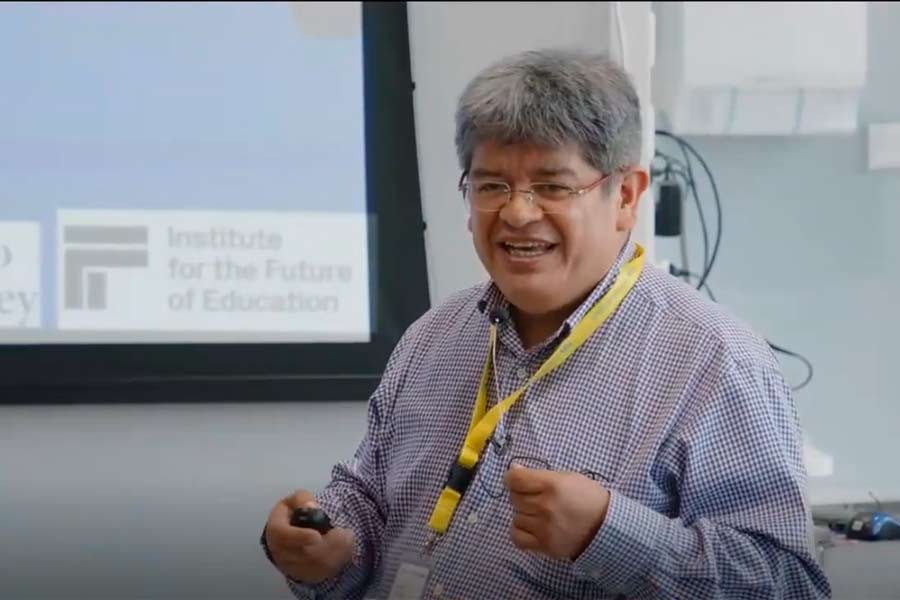
His grandmother and parents motivated him to strive to be the best
“Since my parents worked double shifts as teachers, my grandmother took care of me and always told me: ‘If I go to your school, it’s because I’m going there to pick up a diploma.’ So, I had to put a lot of effort into school, and the truth is, I liked it.”
Dr. Membrillo remembers the time he spent with his grandmother planting in the chinampas in Xochimilco when he was a child.
There were only three types of professionals in Xochimilco: teachers, doctors, and lawyers, says Membrillo, who remembers that it was his grandmother who motivated him to do his best as a student.
“I would get up at 5 o’clock in the morning. At 7 o’clock, I would enter the teacher training college and I’d leave at 1 o’clock in the afternoon. Then, I would go to high school at 3 o’clock in the afternoon and finish at 10 o’clock at night. That’s what it was like every day.
He says he hasn’t forgotten working in the chinampas and the example of his grandmother, as she helped him get ahead.
“There were days when I had 11 exams. (However), that rhythm shaped a lot of my discipline,” he said.
“Since my parents worked double shifts as teachers, my grandmother took care of me and always told me, ‘If I go to your school, it’s because I’m going there to pick up a diploma.’”
Jorge also saw a passion in his parents for sharing knowledge with others and the impact they had on others’ lives.
“I could see they were having a lot of fun. My father would sometimes take me to his afternoon classes, and I was very glad to see that people loved him very much. Here, as in all Mexican communities, teachers are always loved a lot,” he said.
In this way, Dr. Membrillo remained a constant student until he graduated from the Biomedical Research program at the National Autonomous University of Mexico (UNAM).
“The day after I got my bachelor’s degree, I was already teaching high school, right there at the UNAM. I started teaching in 1991,” he recalled.
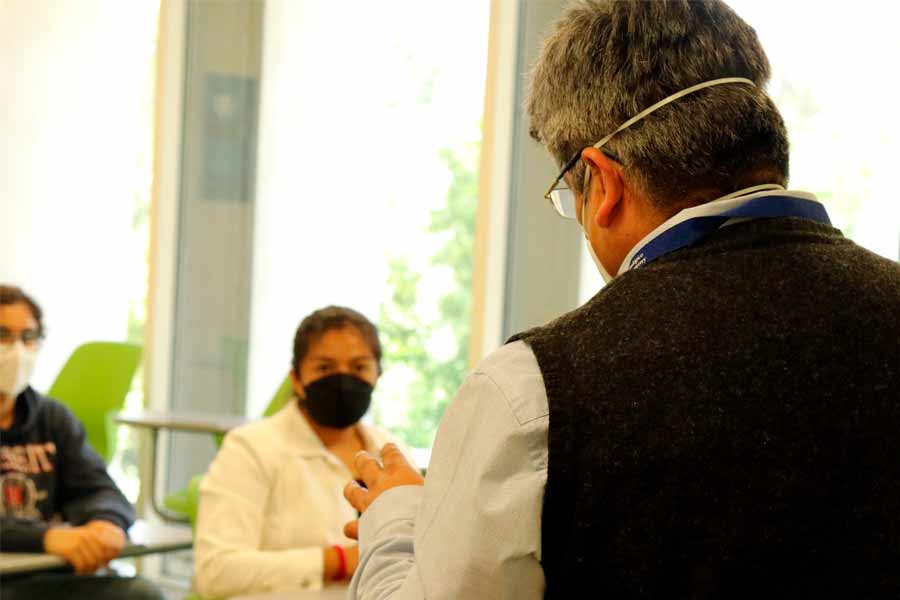
Being an outstanding student led him to study in England and at Harvard
Dr. Membrillo says that he received the Gabino Barreda Medal, a distinction awarded by the UNAM to students with the highest undergraduate grade point average.
After that, he wanted to learn more and understand the role of oxygen in bacteria.
“I saw that the best place to research that topic was in England. So, I applied and won a Conacyt scholarship to study my doctorate degree at King’s College London,” he explained.
In addition, Dr. Membrillo was given the “Young Scientist of the Year Award” in 1996, after his doctoral thesis on a bacterium from Xochimilco was chosen as the best out of 10,000 evaluated by leading scientists and the Royal Society.
Dr. Membrillo also received offers for two postdoctoral stays, one at the University of Sheffield’s Hans Krebs Institute, where he stayed for a year, and another at Harvard University’s School of Medicine, where he collaborated for five years.
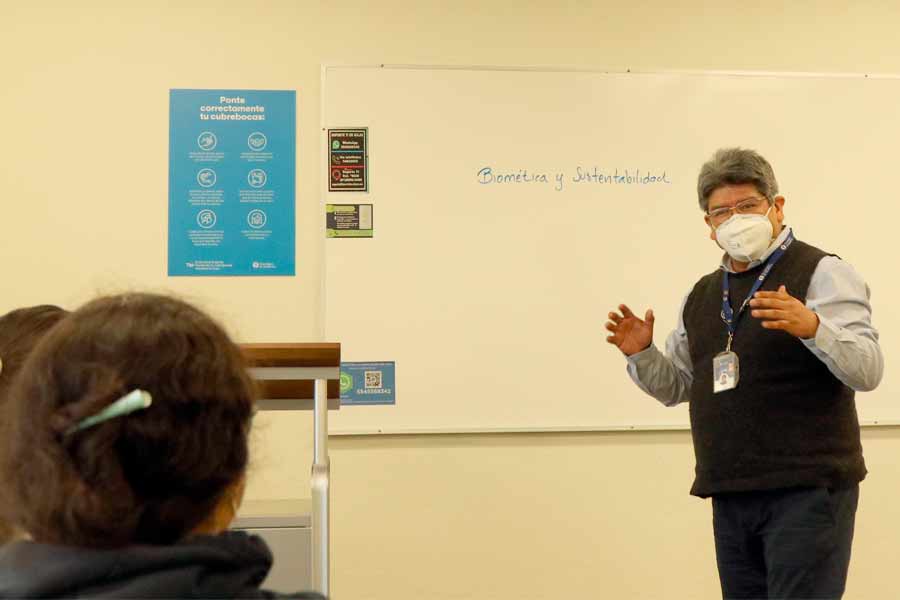
Innovating in education and taking challenges to the next level
Dr. Membrillo has also been a promoter of innovation in the classroom to help engage students in science.
For example, one of his projects was to use augmented reality with smartphone technology to analyze cells and DNA.
“As teachers, we have to study, keep up to date, innovate, and ensure that students find a place where they can express themselves,” says the professor.
“I’ve always had two focuses in my career, science and education, both of which I’ve worked on throughout my life and have done very well in both. For example, I had the experience of teaching with challenges at Harvard,” the professor says.
“I’ve really enjoyed designing challenges at the Tec to help students generate knowledge and skills in ways that are fun, exciting, and help serve to solve society’s problems,” he concludes.
Other achievements and projects
- He has been a member of the New York Academy of Sciences since 1997. He is also a member of the Mexican Academy of Sciences.
- He is President of the Mexico Section of the International Society for Engineering Pedagogy. He has also taught at higher education institutions in nearly 25 countries.
- He has 61 publications in indexed journals of disciplinary research and educational innovation and his work has more than 1,500 citations.
- He has also led two NOVUS research projects related to Challenge-Based Learning educational techniques.
- He has also been one of the 300 academics from around the world chosen to serve on the jury for the QS-Reimagine Education Awards, also known as the “Education Oscars.”
ALSO READ:

